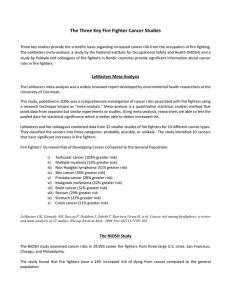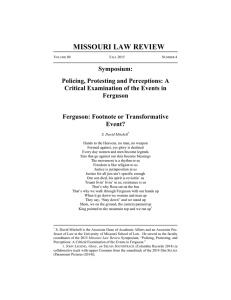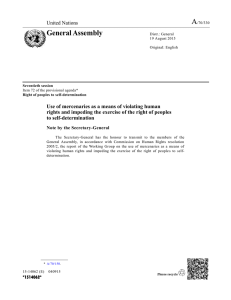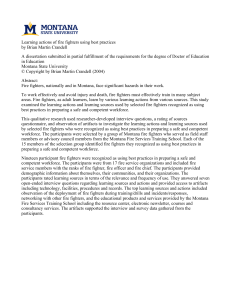AU Newsmakers Top Story – August 29, 2014 August 22
advertisement
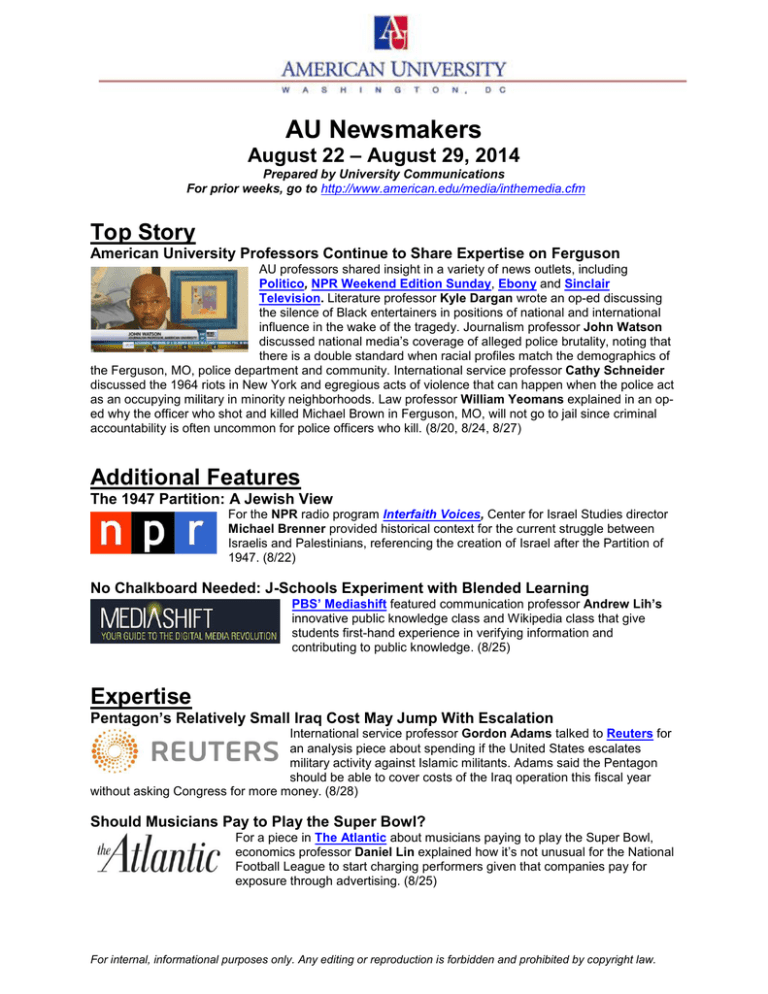
AU Newsmakers August 22 – August 29, 2014 Prepared by University Communications For prior weeks, go to http://www.american.edu/media/inthemedia.cfm Top Story American University Professors Continue to Share Expertise on Ferguson AU professors shared insight in a variety of news outlets, including Politico, NPR Weekend Edition Sunday, Ebony and Sinclair Television. Literature professor Kyle Dargan wrote an op-ed discussing the silence of Black entertainers in positions of national and international influence in the wake of the tragedy. Journalism professor John Watson discussed national media’s coverage of alleged police brutality, noting that there is a double standard when racial profiles match the demographics of the Ferguson, MO, police department and community. International service professor Cathy Schneider discussed the 1964 riots in New York and egregious acts of violence that can happen when the police act as an occupying military in minority neighborhoods. Law professor William Yeomans explained in an oped why the officer who shot and killed Michael Brown in Ferguson, MO, will not go to jail since criminal accountability is often uncommon for police officers who kill. (8/20, 8/24, 8/27) Additional Features The 1947 Partition: A Jewish View For the NPR radio program Interfaith Voices, Center for Israel Studies director Michael Brenner provided historical context for the current struggle between Israelis and Palestinians, referencing the creation of Israel after the Partition of 1947. (8/22) No Chalkboard Needed: J-Schools Experiment with Blended Learning PBS’ Mediashift featured communication professor Andrew Lih’s innovative public knowledge class and Wikipedia class that give students first-hand experience in verifying information and contributing to public knowledge. (8/25) Expertise Pentagon’s Relatively Small Iraq Cost May Jump With Escalation International service professor Gordon Adams talked to Reuters for an analysis piece about spending if the United States escalates military activity against Islamic militants. Adams said the Pentagon should be able to cover costs of the Iraq operation this fiscal year without asking Congress for more money. (8/28) Should Musicians Pay to Play the Super Bowl? For a piece in The Atlantic about musicians paying to play the Super Bowl, economics professor Daniel Lin explained how it’s not unusual for the National Football League to start charging performers given that companies pay for exposure through advertising. (8/25) For internal, informational purposes only. Any editing or reproduction is forbidden and prohibited by copyright law. Returning Islamic State fighters Could Threaten USA Justice, Law and Criminology professor Joseph Young spoke to USA Today about the Islamic State recruitment of Western fighters and why there are fewer American fighters than our European counterparts. (8/22) Don’t Tell Hillary! Women Lack Ambition, Confidence to Succeed in Politics In a discussion with Washington Times, Jennifer Lawless, director of the Women and Politics Institute, spoke about steps that need to be taken to address the lack of encouragement or recruitment of women in electoral politics. (8/25) Investor Behavior by the Book Think Advisor online highlighted finance professor H. Kent Baker’s anthology of behavioral finance articles, Investor Behavior: The Psychology of Financial Planning and Investing, noting that the articles that compile the anthology are too interesting not to read, and provide a good glance into the socio-economic roots of behavioral economics. (8/25) Obama’s Legacy History professor Allan Lichtman discussed President Obama’s legacy with host Bill O’Reilly on FOX Television’s The O’Reilly Factor, noting that presidential legacies change over time and can’t be judged by current polls. (8/27) Syria’s Slow-Motion Humanitarian Disaster Falls Off Media’s Radar With the Washington Diplomat, journalism professor Bill Gentile discussed the lack of coverage of the war in Syria, pointing out the dangers for reporters and a perception by management of mainstream U.S. media that the U.S. audience can pay attention to only a limited number of crises at one time. (8/27) For internal, informational purposes only. Any editing or reproduction is forbidden and prohibited by copyright law.



